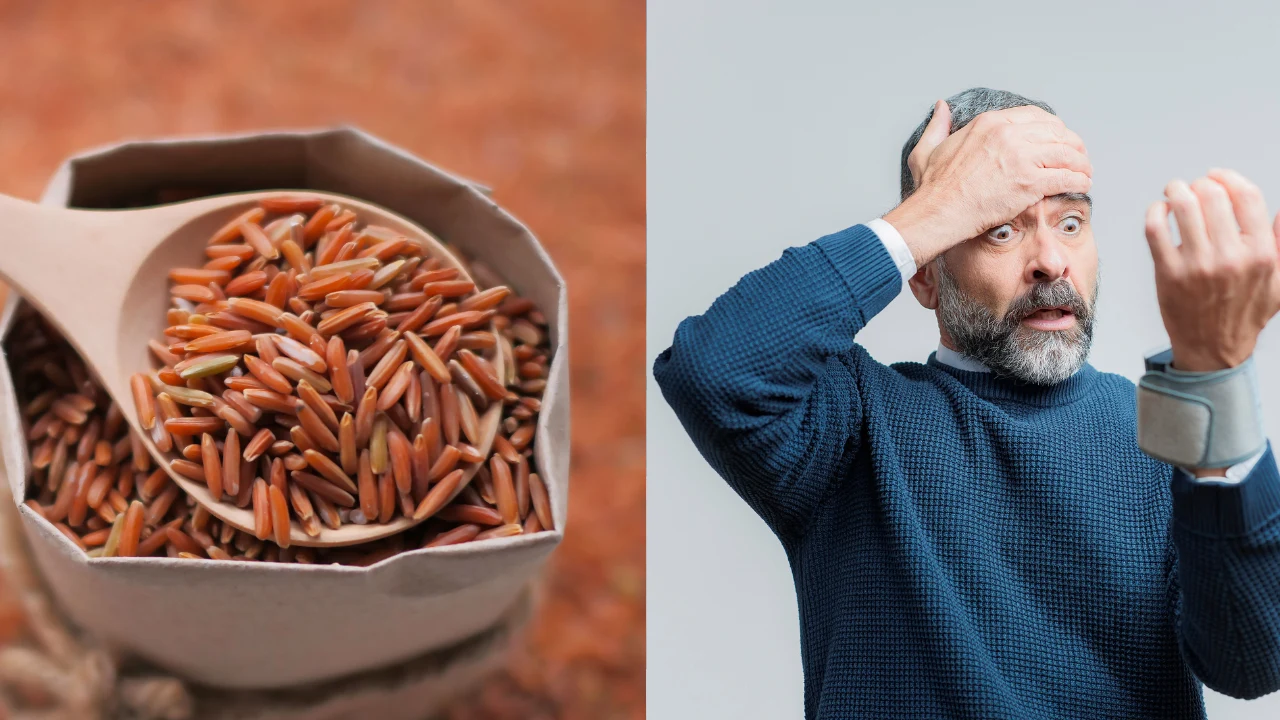High blood pressure, or hypertension, is a significant health concern in the United States. According to the Centers for Disease Control and Prevention (CDC), nearly half of all American adults, approximately 108 million people, have hypertension. This alarming statistic highlights the widespread prevalence of high blood pressure within the population. Moreover, high blood pressure often remains undiagnosed or uncontrolled, leading to severe health complications such as heart disease, stroke, and kidney disease. We took an in-depth look at high blood pressure as well as some dietary interventions that may help mitigate it.
You May Also Like:
Supplements From the Sea for Heart Health: Fish Oil vs. Krill Oil
Is Rice Good for High Blood Pressure: A Dietary Roadmap To Maximize Circulatory Health is an original (Health11News) article.
Is rice good for high blood pressure:
Understanding high blood pressure
High blood pressure, also known as hypertension, is a chronic medical condition characterized by elevated blood pressure levels in the arteries. Blood pressure is the force exerted by the blood against the walls of the arteries as it flows through them. It’s typically measured in millimeters of mercury (mmHg) and recorded as two numbers: systolic pressure (the top number) and diastolic pressure (the bottom number). Systolic pressure represents the force when the heart beats, pumping blood into the arteries. Diastolic pressure, on the other hand, is the force when the heart is at rest between beats.
High blood pressure is a concerning health issue because it places extra strain on the heart and blood vessels. Over time, this strain can lead to various health complications. The arteries, when under consistently elevated pressure, can become less elastic or even narrow, which reduces blood flow to vital organs. Additionally, high blood pressure can damage the inner lining of arteries, making them more susceptible to the build-up of plaque (atherosclerosis), further hindering blood flow.
The effects of high blood pressure extend beyond the cardiovascular system. Hypertension can lead to kidney damage, affecting the organs’ ability to filter waste and regulate fluids and electrolytes in the body. It is also linked to cognitive decline, increased risk of stroke, and the development of conditions like dementia. High blood pressure can cause vision problems, as the increased pressure can damage the blood vessels in the eyes.
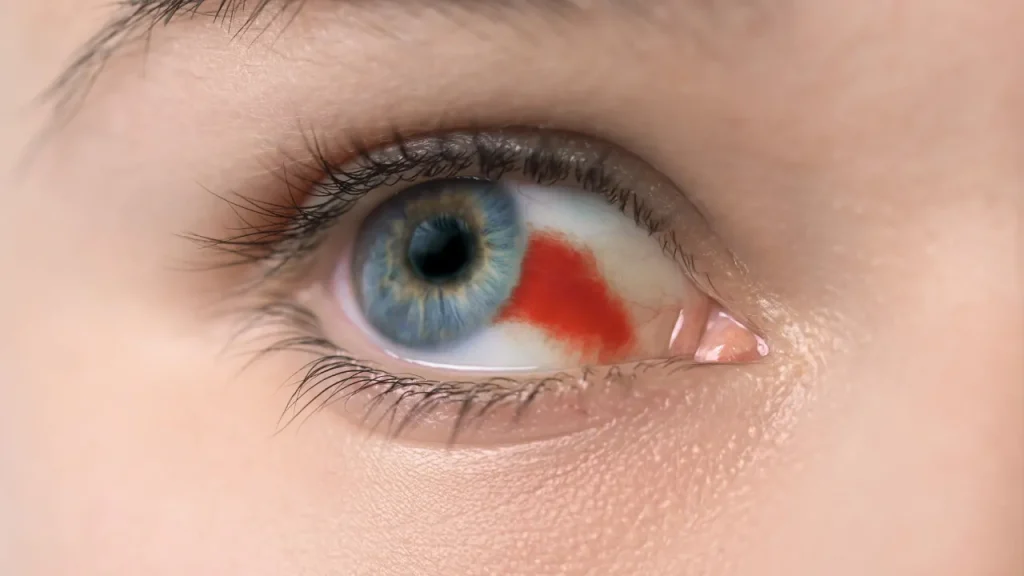
Is rice good for high blood pressure:
Common symptoms of high blood pressure
High blood pressure, often dubbed the “silent killer,” frequently doesn’t present noticeable symptoms, especially in its early stages. This can make it challenging for people to detect and manage without regular blood pressure check-ups. However, in more advanced cases or during hypertensive crises, certain symptoms may manifest.
One common symptom is headaches, particularly if they are severe and persistent. The headaches are often described as a pulsating sensation, typically at the back of the head. However, it’s important to note that not everyone with high blood pressure will experience headaches, and many other factors can cause them as well.
Shortness of breath is another symptom that might manifest, especially during physical exertion. This occurs because the heart must work harder to pump blood through narrowed arteries, and the body may not be receiving enough oxygen-rich blood, leading to a feeling of breathlessness.
Nosebleeds can also occur due to the increased pressure of the blood against the blood vessel walls. While nosebleeds are common and can be caused by various factors, if they are persistent or severe, it’s important to get your blood pressure checked.
In some cases, people with high blood pressure may experience chest pain, known as angina. This pain occurs when the heart muscle isn’t receiving enough blood due to narrowed arteries, typically during physical activity or stress. If you experience chest pain, it’s crucial to seek medical attention promptly.
Is rice good for high blood pressure:
Conventional treatment options
Conventional treatment for high blood pressure primarily revolves around lifestyle adjustments and, when necessary, medication. Lifestyle modifications hold immense significance in managing this condition effectively. A heart-healthy diet, alongside regular exercise, can go a long way in mitigating high blood pressure.
However, in cases where lifestyle changes alone do not suffice, healthcare providers may prescribe medications to help lower blood pressure. These medications fall into various classes, each with distinct mechanisms. Diuretics, for instance, assist the kidneys in eliminating excess sodium and water from the body, thus reducing blood volume, and subsequently lowering blood pressure. Beta-blockers function by decreasing the heart rate and cardiac output, achieved by blocking the effects of the hormone adrenaline. ACE inhibitors and ARBs work by relaxing and widening blood vessels, facilitating smoother blood flow, and consequently reducing blood pressure.
Regular monitoring of blood pressure levels is crucial to track the effectiveness of the prescribed treatment and to adjust as necessary. Routine check-ups with healthcare professionals help ensure that the blood pressure remains within a healthy range. In extreme cases where other treatment options prove ineffective, surgical procedures or interventions such as angioplasty or stent placement might be recommended. Collaborating closely with healthcare providers ensures a comprehensive and tailored treatment plan, aligning with individual needs and minimizing the risks associated with high blood pressure.
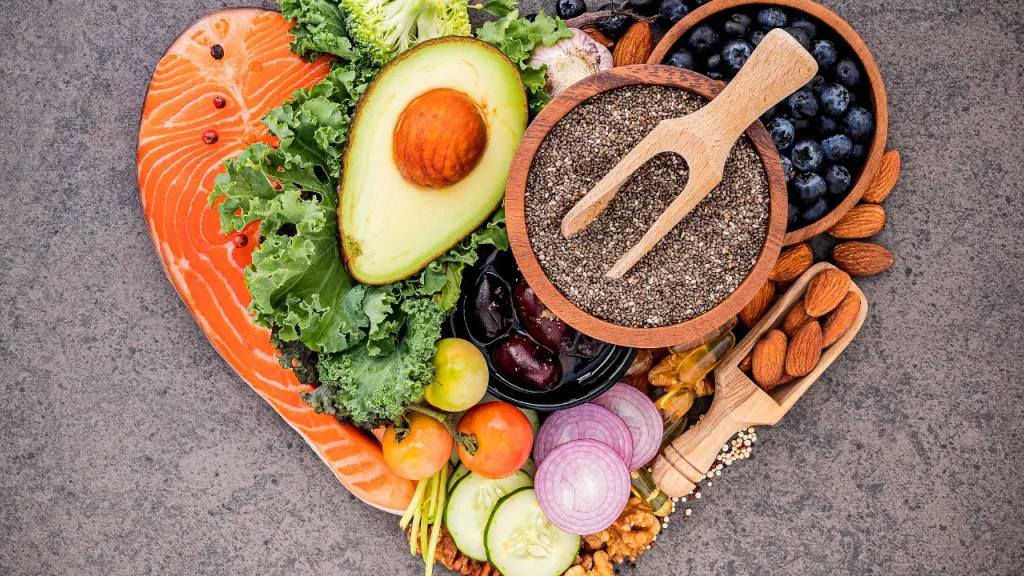
Is rice good for high blood pressure:
Understanding the health benefits of rice
Rice, a staple food for a significant portion of the world’s population, possesses a nutrient profile that can be beneficial in managing high blood pressure. Brown rice is a noteworthy variant due to its higher nutrient content compared to its white counterpart. Brown rice is a great source of fiber, especially insoluble fiber, which aids in digestion and can contribute to maintaining stable blood sugar levels. Fiber is known to have a positive impact on blood pressure as it supports heart health by helping to regulate cholesterol levels.
Furthermore, brown rice contains essential minerals like potassium and magnesium, both of which are crucial for regulating blood pressure. Potassium helps counterbalance the effects of sodium in the body, contributing to lower blood pressure. Magnesium, on the other hand, plays a role in relaxing blood vessels, allowing for smoother blood flow. These minerals contribute to the overall management of blood pressure and cardiovascular health.
When considering the role of rice in mitigating high blood pressure, it’s essential to emphasize the overall dietary pattern. Incorporating whole grains like brown rice into a diet rich in fruits, vegetables, lean proteins, and healthy fats can have a synergistic effect in managing blood pressure levels. The DASH (Dietary Approaches to Stop Hypertension) diet, which emphasizes whole grains, including brown rice, showcases how a balanced and wholesome dietary approach can positively impact blood pressure regulation.
Is rice good for high blood pressure:
Omega-3s as an additional dietary intervention
In addition to rice, a diet rich in omega-3 fatty acids can be useful in mitigating high blood pressure. Omega-3 fatty acids are a type of polyunsaturated fat, a crucial component of a heart-healthy diet. They come in three main forms: alpha-linolenic acid (ALA), eicosapentaenoic acid (EPA), and docosahexaenoic acid (DHA). While ALA is primarily sourced from plant-based foods like flaxseeds and chia seeds, EPA and DHA are predominantly found in fatty fish and certain algae.
Research has consistently shown that omega-3 fatty acids can play a pivotal role in reducing high blood pressure. EPA and DHA demonstrate powerful effects on heart health and blood pressure regulation. They have been proven to lower elevated blood pressure levels by relaxing and dilating blood vessels, facilitating improved blood flow, and reducing strain on the heart.
Moreover, omega-3 fatty acids have demonstrated their ability to decrease inflammation throughout the body, which is crucial for overall cardiovascular health. Chronic inflammation is linked to numerous heart-related issues, including high blood pressure. By addressing this inflammation, omega-3s can indirectly contribute to lower blood pressure.
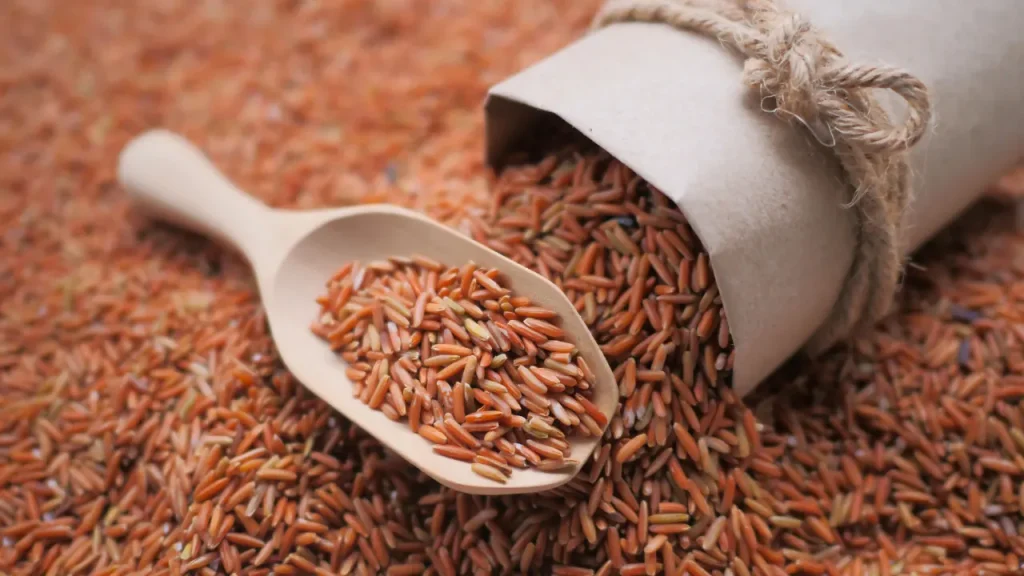
Is rice good for high blood pressure:
Krill oil omega-3 fatty acids
Krill oil, often hailed as a superior form of omega-3 fatty acids, is derived from krill, which are small, shrimp-like crustaceans that inhabit the cold and pristine waters of the ocean. These tiny creatures play a critical role in the marine food chain, feeding on phytoplankton and in turn serving as a key food source for larger marine animals. The oil extracted from krill is rich in essential omega-3 fatty acids, particularly eicosapentaenoic acid (EPA) and docosahexaenoic acid (DHA), which are crucial for various bodily functions.
One of the standout features of krill oil is its unique molecular structure. Omega-3 fatty acids in krill oil are present in the form of phospholipids, which are a key component of cell membranes. This phospholipid structure enhances the absorption and utilization of omega-3s in the body. In contrast, fish oil primarily contains omega-3s in the form of triglycerides. The phospholipid structure of krill oil allows for better bioavailability, meaning the body can more efficiently absorb and utilize these essential fatty acids.
If you’re interested in supplementing with krill oil and are looking for a reliable brand, Kori Krill Oil makes a high-quality krill oil softgel product that might be just what you’re looking for.
To ensure quality, Kori Krill Oil Softgels go through a rigorous processing procedure. They include no artificial flavors or synthetic colors and are made with krill that are free of heavy metals and pollutants.
Additionally, these softgels are third-party tested to further reinforce quality. Third-party testing refers to the evaluation and analysis of a product by an independent organization or laboratory that is not affiliated with the manufacturer or seller. This unbiased evaluation ensures that the product’s ingredients, potency, purity, and overall quality align with the claims made by the manufacturer. Third-party testing is crucial as it provides consumers with an objective and trustworthy assessment of the supplement’s safety and effectiveness. It helps in validating the accuracy of label claims, confirming that the product does not contain harmful substances, and ensuring it meets the required standards for potency and purity.
Kori Krill Oil is also committed to sustainability. The operations behind Kori have earned the highest sustainability credentials and the Antarctic fishery they work with has earned an “A” rating from the Sustainable Fisheries Partnership for 7 years running.
For these reasons, Kori Krill Oil Softgels may serve as a reliable supplement to help manage high blood pressure in combination with professional medical treatment.
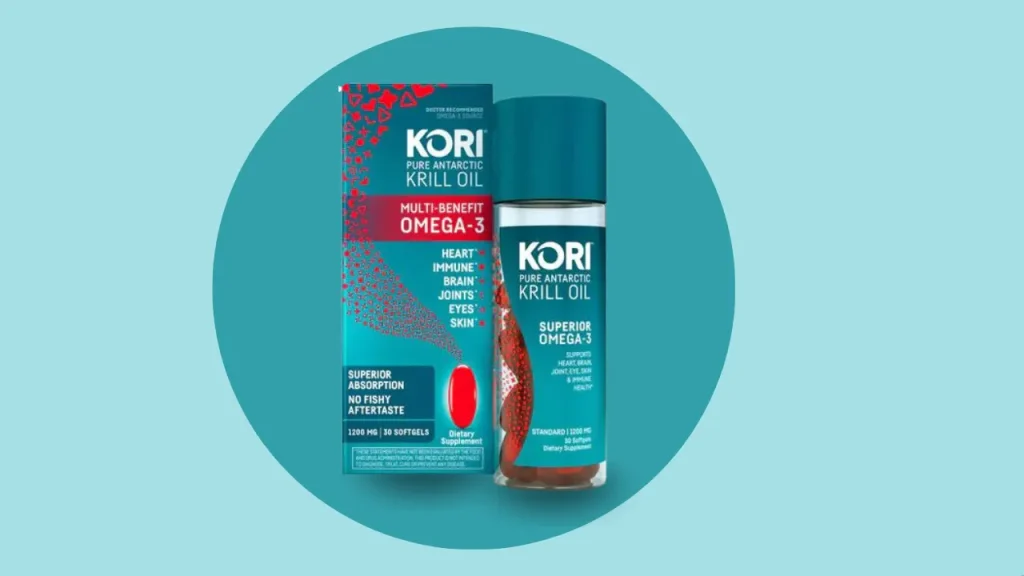
Is rice good for high blood pressure:
Embracing a heart-healthy lifestyle
Mitigating high blood pressure involves a multifaceted approach, encompassing lifestyle and dietary changes that collectively contribute to better overall health. One fundamental strategy is adopting a heart-healthy diet. This includes incorporating more fruits, vegetables, whole grains, lean proteins, and low-fat dairy into your meals while reducing sodium intake. High sodium consumption can lead to water retention and higher blood pressure, so minimizing processed foods and restaurant meals can significantly lower your sodium intake.
Regular physical activity is another crucial element in managing high blood pressure. Engaging in regular aerobic exercises such as brisk walking, jogging, cycling, or swimming can help improve cardiovascular health, strengthen the heart, and regulate blood pressure levels. Aim for at least 150 minutes of moderate-intensity aerobic exercise per week, spread throughout the week.
Maintaining a healthy weight is equally vital in controlling blood pressure. Being overweight increases the workload on your heart and can contribute to higher blood pressure. Implementing a balanced diet and regular exercise can aid in achieving and maintaining a healthy weight.
Furthermore, reducing stress through practices like meditation, yoga, or deep breathing exercises can have a positive impact on blood pressure. Chronic stress can lead to elevated levels of cortisol and adrenaline, which can in turn affect blood pressure adversely. Finding healthy ways to manage and reduce stress is essential for long-term blood pressure management.
Limiting alcohol intake and quitting smoking are also pivotal lifestyle changes. Excessive alcohol consumption and smoking can raise blood pressure and contribute to a range of health issues. Moderation or complete cessation of these habits can significantly lower the risk of developing high blood pressure.
By incorporating these heart-healthy diet strategies alongside supplements like Kori Krill Oil Softgels, you can protect yourself from the “silent killer.”

Further Reading
Good Housekeeping: Is Brown Rice or White Rice Better for You? Dietitians Explain the Difference
MindBodyGreen: How Omega-3 Supplements Help Lower Blood Pressure, According To Research
American Heart Association: Are you getting enough omega-3 fatty acids?
Harvard Health Publishing: Grain of the month: Brown rice
Nutrients: Krill Products: An Overview of Animal Studies
Important Note: The information contained in this article is for general informational purposes only, and should not be construed as health or medical advice, nor is it intended to diagnose, prevent, treat, or cure any disease or health condition. Before embarking on any diet, fitness regimen, or program of nutritional supplementation, it is advisable to consult your healthcare professional in order to determine its safety and probable efficacy in terms of your individual state of health.
Regarding Nutritional Supplements Or Other Non-Prescription Health Products: If any nutritional supplements or other non-prescription health products are mentioned in the foregoing article, any claims or statements made about them have not been evaluated by the U.S. Food and Drug Administration, and such nutritional supplements or other health products are not intended to diagnose, treat, cure, or prevent any disease.

